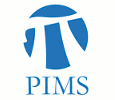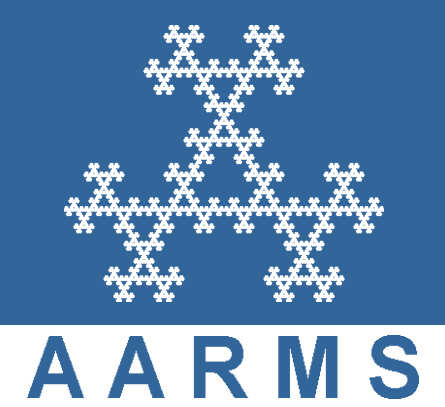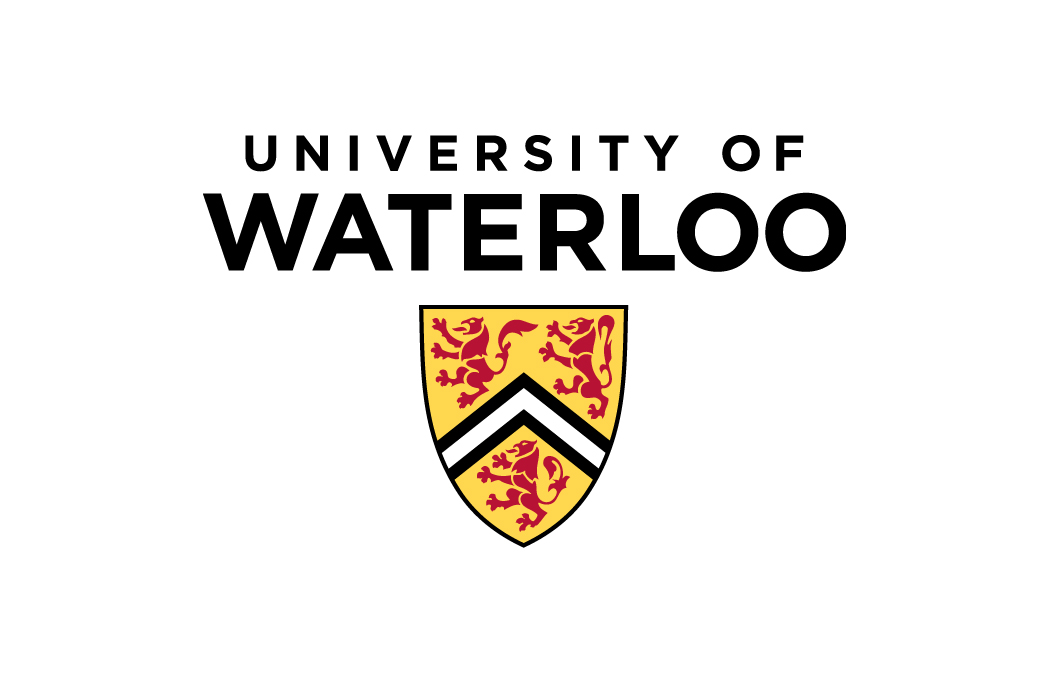2017 CMS Winter Meeting
Waterloo, December 8 - 11, 2017
Org: Matthew Kennedy (University of Waterloo) and Paul Skoufranis (York University)
[PDF]
- MICHAEL BRANNAN, Texas A\&M University
Amenable quantum groups are not always unitarizable [PDF]
-
A well-known theorem of Day and Dixmier from around 1950 states that if G is an
amenable locally compact group, then any uniformly bounded representation of G on a
Hilbert space is similar to a unitary representation. In short, amenable groups are
``unitarizable''. In this talk, I will focus on the question of whether a version of
the Day-Dixmier unitarizability theorem holds in the more general framework of
locally compact quantum groups. It turns out that the answer to this question is no:
In joint work with Sang-Gyun Youn (Seoul National University), we show that many
amenable quantum groups (including all Drinfeld-Jimbo-Woronowicz q-deformations of
classical compact groups) admit non-unitarizable uniformly bounded representations.
- IAN CHARLESWORTH, University of California, San Diego
Bi-free probability and entropy. [PDF]
-
Bi-free probability was introduced by Voiculescu in 2013 as a generalization of free probability to study the joint distributions of families “left” and “right” random variables simultaneously. I will briefly introduce the framework of bi-free probability, and discuss an ongoing project to extend the techniques of non-microstates free entropy to the bi-free setting, difficulties encountered along the way, and peculiarities arising in this more general setting which are not present in the free case. The results discussed are joint work with Paul Skoufranis.
- RAPHAEL CLOUATRE, University of Manitoba
Completely bounded analogues of the Choquet and Shilov boundaries for operator spaces [PDF]
-
Given a unital operator algebra, it is natural to seek the smallest $\rm{C}^*$-algebra generated by a completely isometric image of it, by analogy with the classical Shilov boundary of a uniform algebra. In keeping with this analogy, one method for constructing the so-called $\rm{C}^*$-envelope is through a non-commutative version of the Choquet boundary. It is known that such a procedure can be also be applied to operator spaces, although in this case the envelope has less structure.
In this talk, I will present a certain completely bounded version of the non-commutative Choquet boundary of an operator space that yields the structure of a $\rm{C}^*$-algebra for the associated Shilov boundary. I will explain how the resulting $\rm{C}^*$-algebras enjoy some of the properties expected of an envelope, but I will also highlight their shortcomings along with some outstanding questions about them. This is joint work with Christopher Ramsey.
- KEN DAVIDSON, University of Waterloo
Free semigroupoid algebras [PDF]
-
A free semigroupoid algebra is the WOT-closure of the algebra generated by a Toeplitz-Cuntz-Kreiger family of a graph. We obtain a structure theory for these algebras analogous to that of free semigroup algebra. We clarify the role of absolute continuity and wandering vectors. These results are applied to obtain a Lebesgue-von Neumann-Wold decomposition of TCK families, along with reflexivity, a Kaplansky density theorem and classification for free semigroupoid algebras. Several classes of examples are discussed and developed, including self-adjoint examples and a classification of atomic free semigroupoid algebras up to unitary equivalence. (This is joint work with Adam Dor-On and Boyu Li.)
- GEORGE ELLIOTT, University of Toronto
A simple report on simple C*-algebras [PDF]
-
The classification of simple separable amenable C*-algebras which are Jiang-Su stable and satisfy the Universal Coefficient Theorem (UCT) is almost complete---and is complete in the unital case. In the infinite case (unital or not) it was complete with the work of Kirchberg and Phillips (and earlier authors) twenty years ago.
In the non-unital case a semi-abstract setting has been dealt with that may contain all examples. In the abstract non-unital setting it is still not known if Jiang-Su stability implies finite nuclear dimension (an essential step in the unital case), or for that matter if finite nuclear dimension implies that the semi-abstract axioms (analogous to TAF, etc., in the unital case) are satisfied. The latter implication is known in the case of trivial K-groups, and so these algebras (i.e., simple separable amenable UCT C*-algebras with finite nuclear dimension and K-groups equal to zero) are classified by their tracial cone, together the norm function (the norm of a densely defined lower semicontinuous trace may be finite or infinite).
Note that the tensor product of any C*-algebra with the Jiang-Su C*-algebra is Jiang-Su stable, and is simple, separable, and amenable if the given one is, and so there are many examples of Jiang-Su stable simple separable amenable C*-algebras. Sometimes, Jiang-Su stability holds from the beginning (without tensoring!). Sometimes, this is less evident, but the property of finite nuclear dimension (which is in any case the operative property for classification, and in particular is known to imply Jiang-Su stability) can be established directly.
- THIERRY GIORDANO, Ottawa
- ROB MARTIN, University of Cape Town
Non-commutative Clark measures for the free and abelian Toeplitz algebras [PDF]
- ROB MARTIN, University of Cape Town
-
In the classical theory of Hardy spaces, there is a natural bijection between the Schur class of contractive analytic functions in the complex unit disk and Aleksandrov-Clark measures on the unit circle. A canonical several-variable analogue of Hardy space is the Drury-Arveson space of analytic functions in the unit ball of $d$-dimensional complex space. Drury-Arveson space can be naturally identified with symmetric Fock space, and under this identification, the canonical non-commutative or free analogue of several-variable Hardy space is the full Fock space over $d$-dimensional complex space.
We will extend the concept of Aleksandrov-Clark measure, the bijection between the Schur class and Aleksandrov-Clark measures, Clark's unitary perturbations of the shift and several associated results to the multi-variable Schur classes (the closed unit balls of the analytic Toeplitz algebras) for Drury-Arveson and Fock space.
- JAMES MINGO, Queen's University
The Role of the Transpose in Free Probability: the partial transpose of R-cyclic operators [PDF]
-
Like tensor independence, free independence gives us rules
for doing calculations. With random matrix models, we
usually need tensor independence of the entries and some
kind of group invariance of the joint distribution of the
entries to get the (asymptotic) freeness necessary to apply
the tools of free probability.
A few years ago Mihai Popa and I found that the transpose also produces asymptotic freeness, i.e. a matrix could be asymptotically free from its own transpose. Since that we have expanded this work to the case of the partial transposes that arise in quantum information theory.
In this talk I will explain what happens when one transposes certain R-cyclic operators.
- VERN PAULSEN, University of Waterloo
Reverse Cholesky factorization and reproducing kernel Hilbert spaces [PDF]
-
We prove that every positive semidefinite matrix over the natural numbers that is eventually 0 in each row and column can be factored as the product of an upper triangular matrix times a lower triangular matrix. We also extend some known results about factorization with respect to tensor products of nest algebras. Our proofs use the theory of reproducing kernel Hilbert spaces.
- CHRIS RAMSEY, University of Manitoba
The Hao-Ng isomorphism problem [PDF]
-
Let $(X,C)$ be a C$^*$-correspondence and $\alpha$ be a generalized gauge action of a locally compact group $G$ on $(X,C)$, namely $\alpha$ is a completely isometric module isomorphism. The Hao-Ng isomorphism problem asks if $$\mathcal O_X \rtimes_\alpha G \simeq \mathcal O_{X \rtimes_\alpha G}$$ whether the crossed product of a Cuntz-Pimsner algebra is a Cuntz-Pimsner algebra of a crossed product correspondence. Hao and Ng started this research area by proving that this is true when $G$ is amenable and many people have tried to prove a more general result. Elias Katsoulis and I have rephrased this question as really being a question about non-selfadjoint operator algebras, which is what I will talk about.
- CHRIS SCHAFHAUSER, University of Waterloo
AF-Embeddings of Nuclear C*-algebras [PDF]
-
A C*-algebra is approximately finite dimensional (AF) if it can be expressed as a closed union of finite dimensional subalgebras. Although the class of AF-algebras is fairly well understood, subalgebras of AF-algebras are still mysterious. A question of Blackadar and Kirchberg asks if every separable, nuclear, stably finite C*-algebra embeds into an AF-algebra. I will discuss a recent partial solution to this question: every separable, nuclear, C*-algebra which satisfies the UCT and has a faithful trace embeds into an AF-algebra. Moreover, the AF-algebra may be chosen to be simple, unital, with unique trace, and the embedding may be chosen to be trace-preserving. The key tool is a new classification result for faithful morphisms from separable, nuclear, UCT C*-algebras into simple, unital, Q-stable AF-algebras with unique trace.
- AARON TIKUISIS, University of Ottawa
The Toms-Winter conjecture: Z-stability and nuclear dimension [PDF]
-
The Toms-Winter conjecture predicts that three very different-looking properties are equivalent for simple separable amenable unital infinite dimensional C*-algebras.
I will discuss two of these properties - Z-stability and finite nuclear dimension - and a very recent result that they are equivalent.
This is joint work with J. Castillejos, S. Evington, S. White, and W. Winter.
- MATTHEW WIERSMA, University of Alberta
Kirchberg's factorization property for locally compact groups [PDF]
-
A locally compact group $G$ has the factorization property if the map $$C^*(G)\odot C^*(G)\ni a\otimes b\mapsto \lambda(a)\rho(b)\in\mathcal B(L^2(G))$$ is continuous with respect to the minimal C*-norm. The factorization property for discrete groups is relatively well studied due to its connection to approximation and local properties of discrete group C*-algebras. In contrast, the factorization property was virtually unstudied for non-discrete groups until very recently. I will discuss recent developments on the factorization property for non-discrete groups.
- DILIAN YANG, University of Windsor
Self-similar $k$-graph algebras [PDF]
-
In this talk, I will introduce self-similar actions of groups on $k$-graphs, and present some properties, such as nuclearity, simplicity and pure infiniteness, of the associated Cuntz-type C*-algebras. This talk is based on the on-going joint work with Hui Li.





